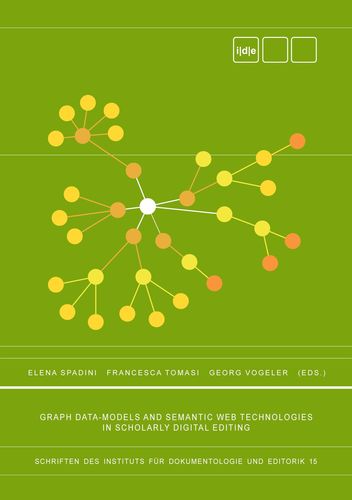Making data: materializing digital information
 For many outside of the scientific community, big data and the forms it takes, such as statistical lists, spreadsheets and graphs, often seem abstract and unintelligible. This book investigates how digital fabrication and traditional making approaches are being used to present data in newly engaging and interesting ways.
For many outside of the scientific community, big data and the forms it takes, such as statistical lists, spreadsheets and graphs, often seem abstract and unintelligible. This book investigates how digital fabrication and traditional making approaches are being used to present data in newly engaging and interesting ways.
The first part of the book introduces the basic premise of the data object and the concept of making digital data into a physical form. Contributors cover topics such as biometrics, new technology, the economics of data and open and community uses of data. The second part presents a selection of exemplar forms and contexts for the application of data-objects, such as smart surfaces, smart cities, augmented reality techniques and next generation technical interfaces that blend physical and digital elements.
Making Data delivers the importance and likely future prevalence of physical representations of data. It explores the creative methods, processes, theories and cultural histories of making physical representations of information and proposes that the making of data into physical objects is the next important development in the data visualisation phenomenon.
zum Buch im ULB-Katalog
zum Buch auf der Verlags-Website
Graph Data-Models and Semantic Web Technologies in Scholarly Digital Editing
 This volume is based on the selected papers presented at the Workshop on Scholarly Digital Editions, Graph Data-Models and Semantic Web Technologies, held at the University of Lausanne in June 2019.
This volume is based on the selected papers presented at the Workshop on Scholarly Digital Editions, Graph Data-Models and Semantic Web Technologies, held at the University of Lausanne in June 2019.
The Workshop comprised two full days of vibrant discussions among the invited speakers, the authors of the selected papers, and other participants.1 The acceptance rate following the open call for papers was around 60%. All authors – both selected and invited speakers – were asked to provide a short paper two months before the Workshop. The authors were then paired up, and each pair exchanged papers. Paired authors prepared questions for one another, which were to be addressed during the talks at the Workshop; in this way, conversations started well before the Workshop itself.
After the Workshop, the papers underwent a second round of peer-review before inclusion in this volume. This time, the relevance of the papers was not under discussion, but reviewers were asked to appraise specific aspects of each contribution, such as its originality or level of innovation, its methodological accuracy and knowledge of the literature, as well as more formal parameters such as completeness, clarity, and coherence.
The bibliography of all of the papers is collected in the public Zotero group library GraphSDE20192, which has been used to generate the reference list for each contribution in this volume.
The invited speakers came from a wide range of backgrounds (academic, commercial, and research institutions) and represented the different actors involved in the remediation of our cultural heritage in the form of graphs and/or in a semantic web en- vironment. Georg Vogeler (University of Graz) and Ronald Haentjens Dekker (Royal Dutch Academy of Sciences, Humanities Cluster) brought the Digital Humanities research perspective; the work of Hans Cools and Roberta Laura Padlina (University of Basel, National Infrastructure for Editions), as well as of Tobias Schweizer and Sepideh Alassi (University of Basel, Digital Humanities Lab), focused on infrastructural challenges and the development of conceptual and software frameworks to support researchers’ needs; Michele Pasin’s contribution (Digital Science, Springer Nature) was informed by his experiences in both academic research, and in commercial technology companies that provide services for the scientific community. The Workshop featured not only the papers of the selected authors and of the invited speakers, but also moments of discussion between interested participants. In addition to the common Q&A time, during the second day one entire session was allocated to working groups delving into topics that had emerged during the Workshop. Four working groups were created, with four to seven participants each, and each group presented a short report at the end of the session. Four themes were discussed: enhancing TEI from documents to data; ontologies for the Humanities; tools and infrastructures; and textual criticism. All of these themes are represented in this volume.
zur gedruckten Ausgabe des Buches im ULB-Katalog
zum Buch auf der Herausgeber-Website
zur Open-Access-Version des Buches auf der Verlags-Website
Weitere Titel zu den Digital Humanities finden Sie z.B. über eine Suche in disco.
